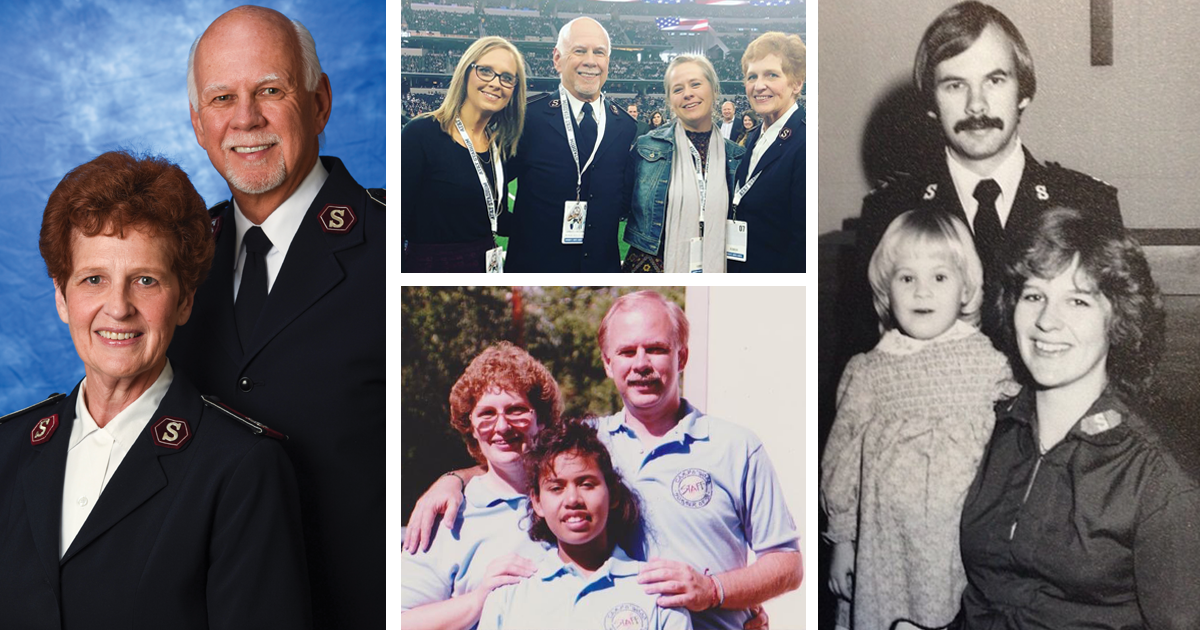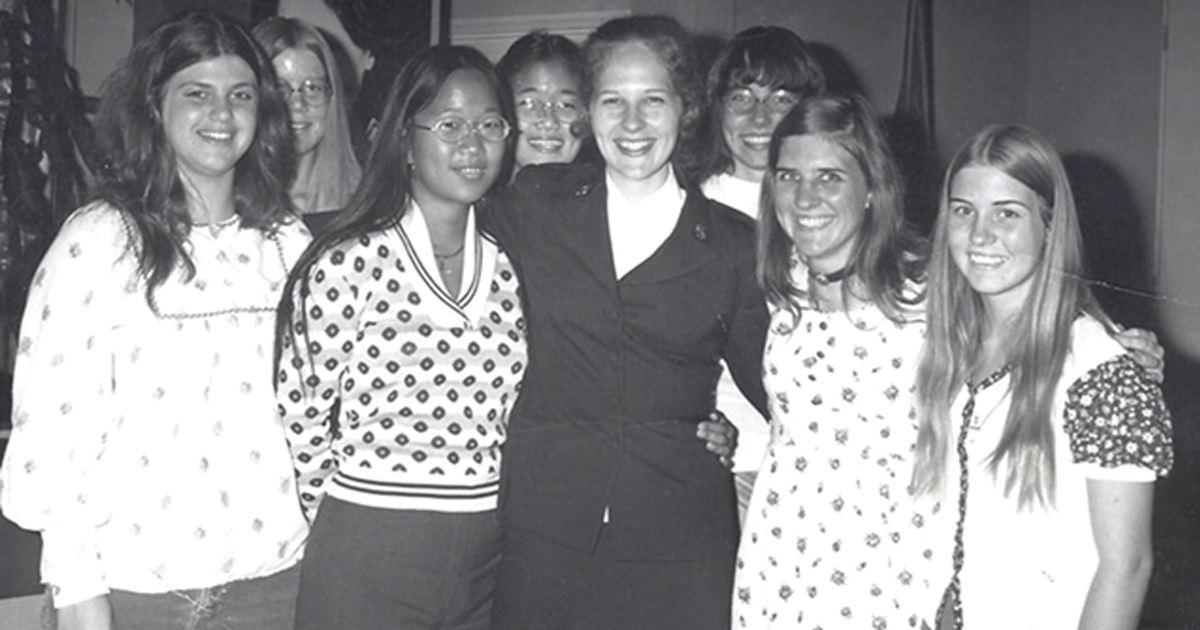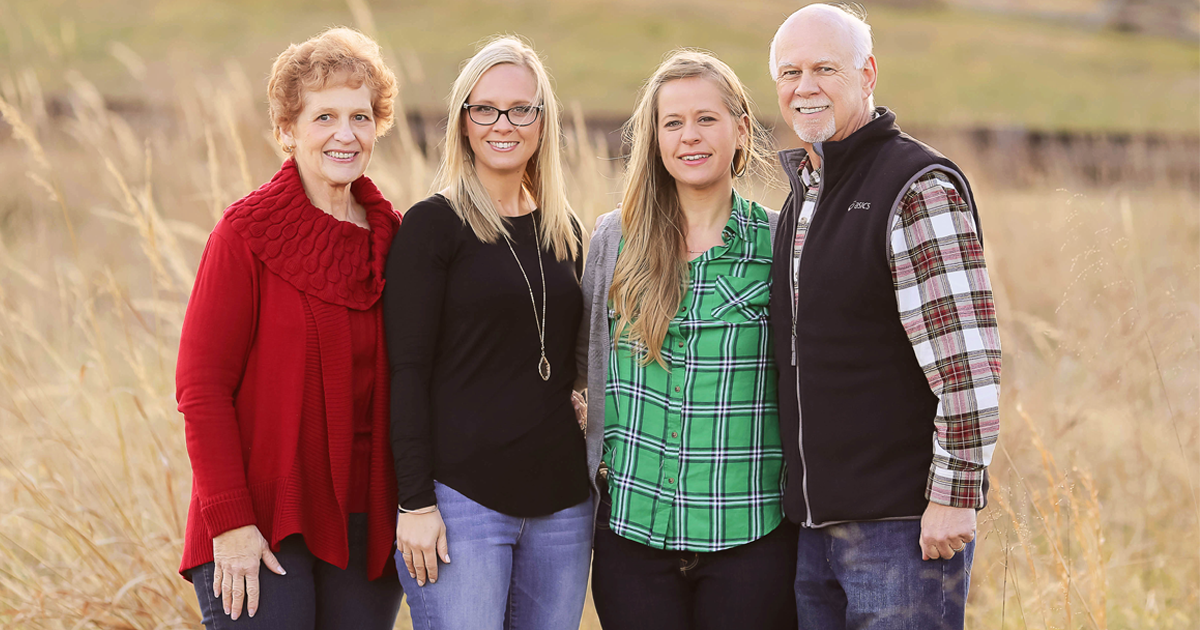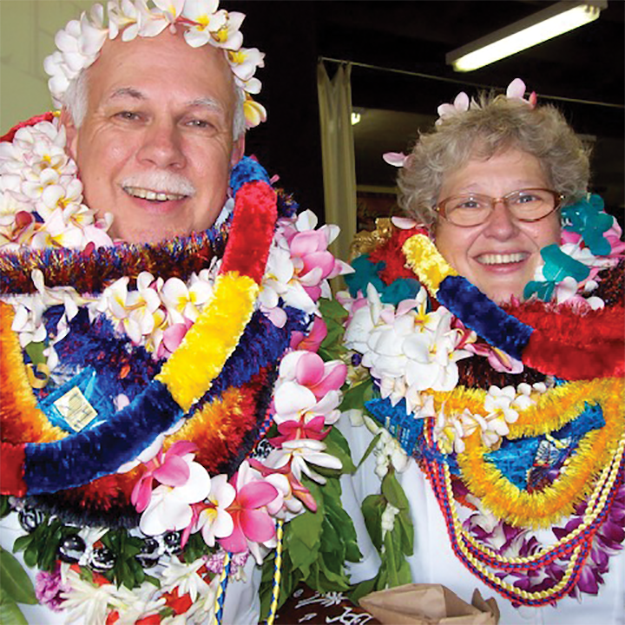How the Army Runs
After completing 45 years of active officership, Commissioner David Hudson and Commissioner Sharron Hudson look forward to retirement.
Commissioner David Hudson, National Commander, and Commissioner Sharron Hudson, National President of Women’s Organizations, talk with Jeff McDonald about their passion for ministry, their grasp of the Salvation Army’s mission and what they look forward to in retirement after completing 45 years of active officership.
What are you most proud of during your tenure as national leaders?

David: Over the past three years, we have been privileged to see the scope of the worldwide services of the Army’s work. It was a joy to travel with several Salvation Army World Service (SAWSO) technical advisors to places like Kenya, Indonesia, the Philippines, Japan and Myanmar, and see firsthand the passion of our people. We experienced the great, life changing work in each of the USA territories. We are proud of our Salvation Army.
What are your hopes for the Army in the future?
David: That the Army continues to be mission focused. Our mission is one; it is not “preaching the Gospel, then meeting human needs in His Name without discrimination.” Preaching the Gospel is meeting human needs and meeting human needs in His Name is preaching the Gospel. When we are actively engaged in missional work, there is no other organization in the world that has more impact.
Sharron: Every time I think of what will become of this Army that I love, I pray that those who serve—whether they be officers, soldiers, advisory organizations members or volunteers—continue to meet human need with passion and compassion for those whom the Lord has called us to serve, that they continue to seek the Lord for wisdom and strength.
What were your expectations coming into the role of national leaders and what did you discover was the reality?
David: Knowing that I had less than three years to serve as National Commander, I had two driving goals. First was to foster a collegial relationship among the four U.S. territories and National Headquarters. I believe this has been accomplished, mainly due to the strong territorial leaders, who have been extremely receptive to working together. Second was to leverage the Office of the National Commander to become a national voice in the areas the Army is strong. We cannot speak into every issue, although many people would like us to; we can, and should, however, speak into the issues where we are the experts, like homelessness, vulnerable populations, anti-human trafficking and addiction rehabilitation. I am pleased with the progress we have made in this area. However, we have simply scratched the surface. The Army has a great deal to offer our country and we need to become more confident in speaking into issues where we are knowledgeable.
Sharron: My expectations and reality were that I needed to be faithful to this appointment as I have been for previous assignments throughout these 45 years of service. Even after all these years I am still overwhelmed by the vastness of influence and ministry of The Salvation Army. This has been especially true since serving at NHQ. The NHQ employees and officer staff have been so special to me—their dedication, loyalty and compassion for the mission of the Army. I am also grateful that my eyes have been opened to the wonderful service by all of the four territories and throughout the world.

What do you look forward to in your retirement? What will be your ongoing involvement with the Army?
David & Sharron: Retirement is a mixed bag. While we are looking forward to the opportunities we will have, it is unknown waters. For the past 45 years, we have lived a prescriptive life, went where we were told to go, lived we where we were told to live and do what we were told to do. Now we will go and must decide all this for ourselves. We haven’t decided which corps we will attend; there are several great choices in the greater Phoenix area and we want to go where we can help the most (without interfering).
How did you first come to know the Army?
David: My mom was a soldier and so we attended the Army whenever the community had a corps.
Sharron: My father came through what was then called the Men’s Social Service Center (now Adult Rehabilitation Center) program. My mom was secretary to the officer in charge. He had married young and already had two preteen daughters. So, I continue to have a heart for the Army’s social services.
How did you two meet?
David & Sharron: We met in the School for Officers Training in 1973. For Dave, it was love at first sight. For Sharron, well, she needed some convincing.

How did you maintain your equilibrium during the various demands of officership?
David: Good question. The simple answer is we have tried not to tie our identity totally to officership. We are blessed with a strong loving family and a group of fantastic friends; they help a great deal in keeping us balanced.
What did you find most challenging or discouraging in your officership?
David: The most challenging by far is farewell orders. We tend to grow roots and build relationships in appointments. This makes leaving very difficult. The most discouraging is when people have chosen to do things that damage or undermine the mission of the Army. We love the mission; it reveals the passion of the Army for others. When people outside the Army question the mission, it impedes our ability to show the love of Christ.
What advice would you give to the next national leaders?
David: The good news is Commissioners Kenneth G. and Jolene Hodder will be the next national leaders. They are highly skilled and will do a phenomenal job; they really don’t need our advice. However, if they asked, we would tell them to be themselves and keep the mission in the forefront.
What is your favorite scripture and why?
David: Ephesians 1:18, “I pray that the eyes of your heart may be enlightened in order that you may know the hope to which He has called you, the riches of His glorious inheritance in His holy people.” All that I am is because of God’s grace and His calling on my life.
Sharron: Lamentations 3:21-24, “Yet this I call to mind and therefore I have hope: Because of the Lord’s great love we are not consumed, for His compassions never fail. They are new every morning; great is Your faithfulness. I say to myself, ‘The Lord is my portion; therefore, I will wait for Him.’” These words were written during discouraging times for the writer. I love them because I know the Lord is faithful to me no matter what.

What is your fondest memory of married life?
David: Our family, especially our daughters are the great joy of our lives. The great news is that we are not retiring from them.
What do you consider as an outstanding highlight from Salvation Army history that should inspire Salvationists going forward?
David: The Army has a great ability to adapt and move quickly, when it wants to. Consider any significant event, whether it be 9/11, Hurricane Katrina or the Covid–19 pandemic. The Army runs toward the needs of others. That is our DNA. William Booth said it best to his son in response to the homeless sleeping under the London Bridge, “Do something!”
How did God place a call on your life?
David: My aunt and corps officer in Portland where the most influential people in my early life. Both were officers and I wanted to be like them. God used their love for me to teach me that true authority is only revealed in love. I wanted to show that same love for others and I knew no better way than officership.
Sharron: Even though I grew up loving all the corps activities, summer camps and service opportunities, I really didn’t think about becoming an officer. In 1971 I went on a mission with the Summer Service Corps. We traveled around the Western Territory participating in ministry to children. We visited many small corps and my eyes were opened. The Lord distinctly said to me, “Sharron, I need you to love my people.” I took that as my call and followed it with every appointment given.
Who has been most influential and inspirational in your life?
David: My Aunt, Brigadier Verna Davis. She loved me unconditionally. When my stepfather committed suicide, she took my mom and me into her home. She made me want to be like her. I am a Salvation Army officer today largely due to the influence she had on my life.
Sharron: My mom—she worked outside the home as long as I could remember. She was faithful to the Lord even during times of difficulties. She was not only my mom, but my friend.
What can we in the United States learn from the Army in different parts of the world?
David: We can learn something from anyone if we listen. Just because America has been fortunate with financial wealth doesn’t mean we have all the answers. Few problems are solved with money. Other countries and cultures understand that people thrive best when they come together. We would do well to learn that.
What are you most looking forward to in your retirement?
David: Ignoring the approved automobile list and buying whatever car we want! Seriously, living in the same city as our daughter Jennifer, will be a dream come true.

David and Sharron Hudson were commissioned as officers in The Salvation Army in 1975. They have a wide range of experience as officers, including ap- pointments at USA National Headquarters, Western Territorial Headquarters, Hawaii & Pacific Islands Divisional Headquarters, San Diego Divisional Headquarters, Southwest Divisional Headquarters and as corps officers for 14 years in Oregon, Idaho and Southern California.
Commissioner David holds a bachelor’s degree in Business Management and a Master of Science in Leadership. Commissioner Sharron holds a master’s in Christian Leadership.
They were married in 1976 and have two daughters, Jennifer and Amy, as well as two grandchildren.
Commissioner David’s personal interests include reading, running, hiking and keeping active. Commissioner Sharron’s interests include singing, reading for personal development and being a grandmother.







